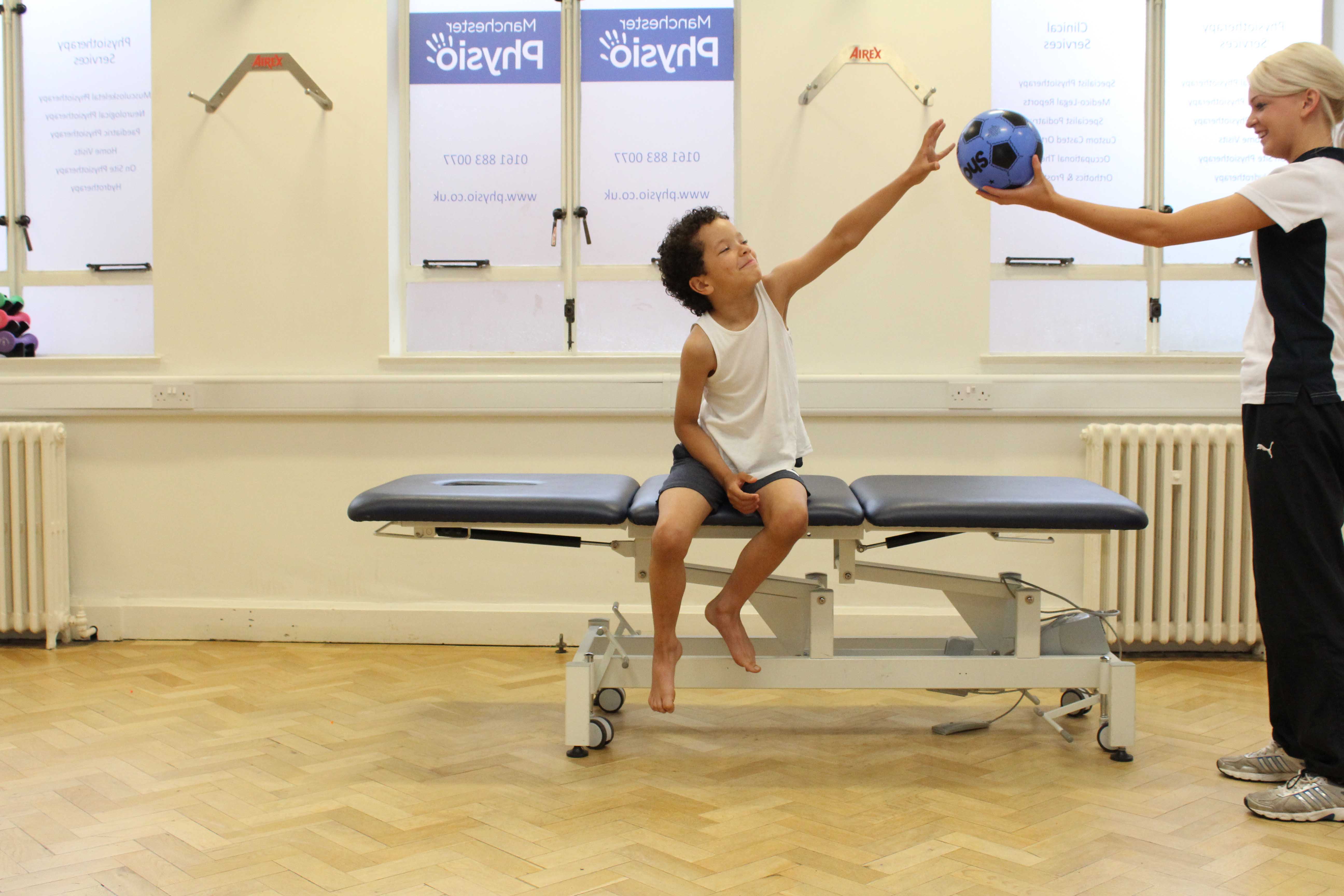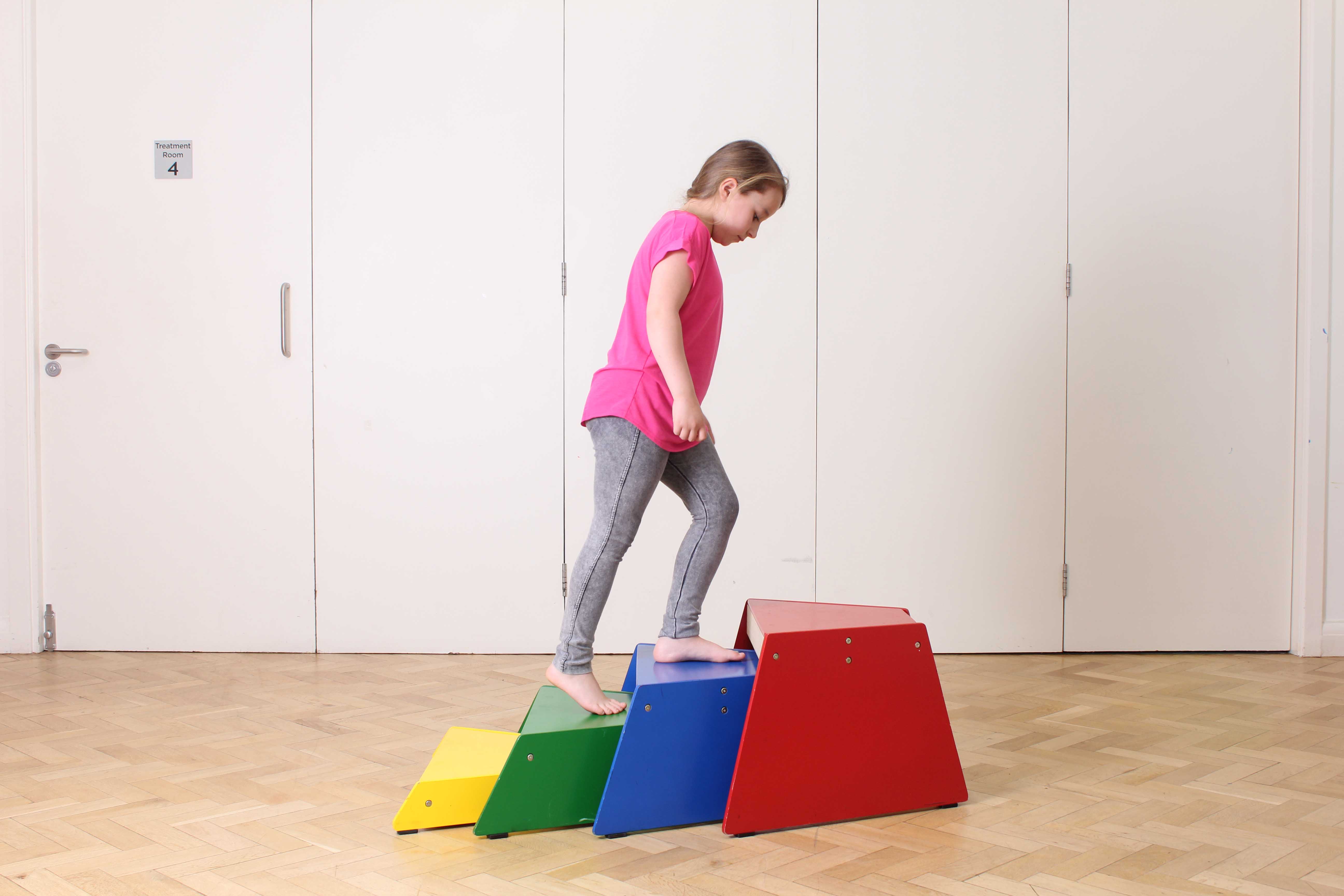What is encephalitis?
Encephalitis isacuteinflammation of the brain due to a viral infection which causes loss of brain function. Encephalitis usually begins with flu-like symptoms, such as fever and headache. The symptoms can then rapidly progress within hours and a person may experience confusion, seizures (fits)and loss of consciousness.
 Above: Ankle stretches and mobilisations to relieve pain and stiffness
Above: Ankle stretches and mobilisations to relieve pain and stiffness Diagnosis of encephalitis
It is important to get a prompt and accurate diagnosis if encephalitis is suspected to reduce damage to the brain. It is also vital that other causes of the symptoms, such as meningitis or stroke are ruled out as these conditions require different treatment.
There are two main tests that are used to diagnose encephalitis:
- Computerised tomography (CT) scan
- Lumbar puncture
What causes encephalitis?
There are two main causes of encephalitis which include:
- Infectious encephalitis - the brain is directly infected by a virus which damages the brain tissue such as the herpes simplex virus or a childhood virus such as mumps, measles or rubella
- Post-infective encephalitis - the body’s own immune system attacksthe brain tissue days or weeks after a viral infection. It is unclear why this occurs
 Above: Facilitating upper limb mobilisations with the use of a gym ball and supervision of neurological physiotherapist
Above: Facilitating upper limb mobilisations with the use of a gym ball and supervision of neurological physiotherapistWhat are the symptoms/effects of encephalitis?
Initial symptoms of encephalitis can vary from mild to severe cases. Symptoms may include:
- Fever
- Headache
- Nausea and vomiting
- Fatigue
- Confusion
- Seizures (fits)
- Problems with speech or hearing
- Memory loss
Physical symptoms
- Muscle weakness of one or both sides of the body
- Reduced sensation
- Increased muscle tone (spasticity) and/or decreased muscle tone (flaccidity)
- Poor balance in sitting and standing
- Difficulty controlling movement of the arms and legs for everyday actions
- Reduced mobility
- Decreased exercise tolerance
- Memory loss
- Personality changes
- Epilepsy
- Problems with speech and language
Physiotherapy for encephalitis
At Physio.co.uk our specialised neurological physiotherapists are experienced in assessing and treating problems with movement and loss of physical skills, which may occur following encephalitis. Physiotherapy at Physio.co.uk will help enhance your ability with everyday tasks by focusing on:
- Increasing head and trunk control
- Improving sensation and joint sense
- Promoting and facilitating normal movement in the arms, trunk and legs
- Improving balance
- Improving posture
- Increasing muscle strength
- Improving and maintaining joint range of movement
- Relieving pain
- Enhancing independence with functional tasks such as rolling, sitting, standing and walking
- Improving quality of life
- Exercises to facilitate normal movement patterns and improve ability with functional tasks
- Practicing functional activities such as rolling, sitting, sit to stand and walking
- Stretching and strengthening program to relieve stiffness and increase muscle strengthwhich will make everyday tasks much easier
- Advice regarding posturein lying, sitting and standing
- Balance training focusing on sitting and standing balance to help maximise mobility
- Advice about walking aids and specialist seating if necessary
- Manual handling training sessions for carers and families which will include therapeutic handling, transfers and positioning techniques to increase comfort and promote postural alignment. The therapeutic use of hoist and slings can also be taught
For more information or to book an appointment please call 0330 088 7800.

 0330 088 7800
0330 088 7800


































